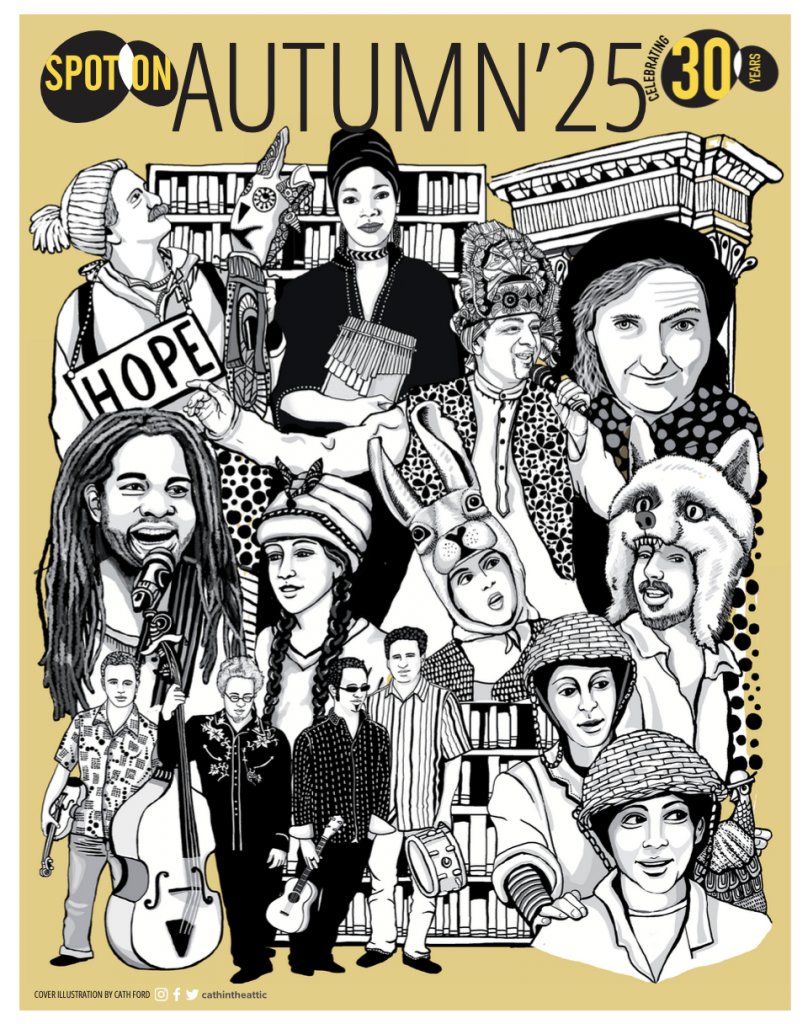News
“People feel less isolated by coming to our shows – it’s the community’s sitting room” – 30 years of Spot On Lancashire
15 October 2025
They’ve had a New Zealand dance company perform a show on the back of a bus, performances by torchlight following a power cut, and Buddhist monks playing crazy golf – welcome to Spot On Lancashire.
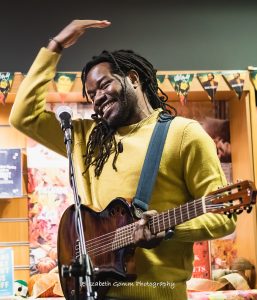
Many rural touring schemes are celebrating signifiant anniversaries this autumn. NRTF is spotlighting schemes which have gone the distance and continue to provide amazing cultural experiences for communities. We speak to Sue Robinson to find out about the sensational (and surreal times) at Spot On.
Tell us about Spot On
Sue: Spot On is Lancashire’s rural and library touring service and is run by Culturapedia, a Blackburn-based independent arts organisation.
Spot On is supported by the Arts Council National Portfolio and we work with communities to bring live professional performing arts to village halls and libraries across the county.
We do this by supporting volunteers and librarians to have the confidence to select and host professional live arts events in their venues and together with them we programme a diverse range of artists over two seasons a year.
Or putting it another way, we enable people to give their communities a great night out on their doorstep!
The images here are from our very first show on 20 November 1995 – Crumble. And of our very first show of 2025 – Canadian singer and performer Duane Forrest.
What is the impact of your work to rural audiences?
Sue: We know from feedback that around 85% of our audiences only experience a live show through Spot On.
Most of those live less than 5 miles from a venue. We are hyper-local.
After 30 years, rural public transport is still extremely poor in the county and the only way to get out to an urban arts venue is to drive.
For many audiences near us in Lancashire, those arts venues are “not for me” which hides a lack of confidence, or a fear of stepping over a threshold.
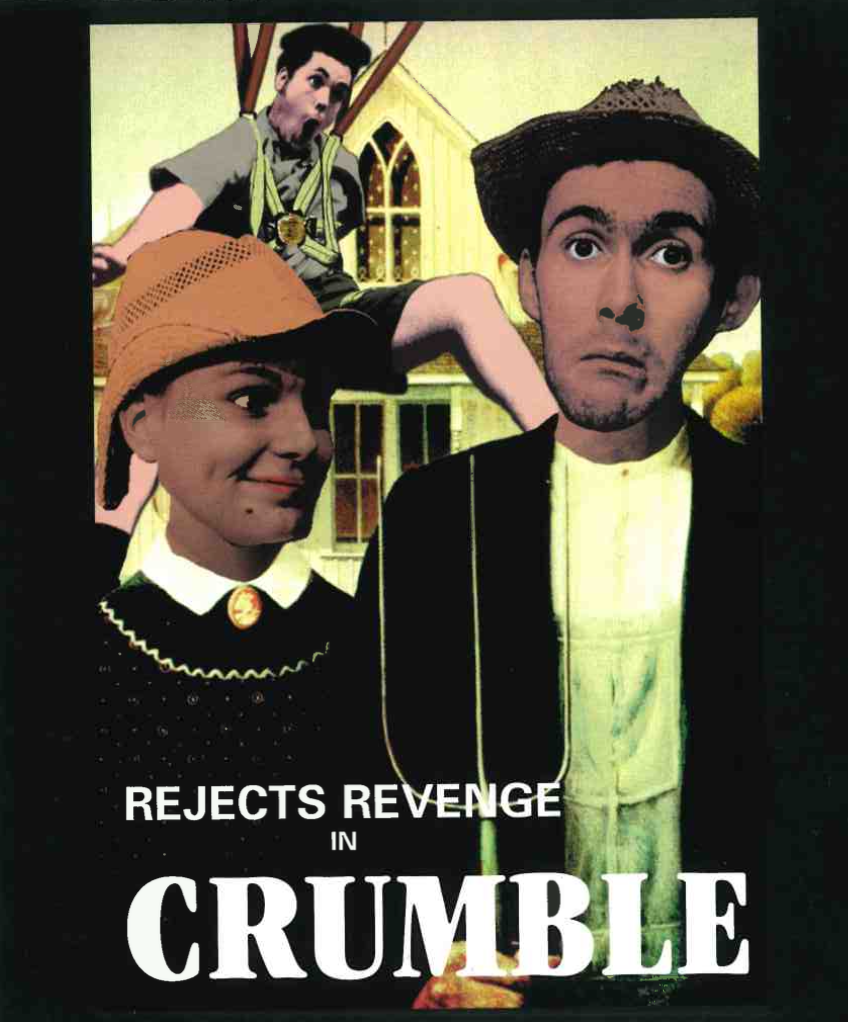
What should be an every day enjoyable activity can become a planning nightmare and can put people off.
We know that people feel less isolated by coming to one of our shows, that they can often go on their own and feel welcomed in a comfortable space.
It’s the community’s sitting room. That aside, we also have a core of devotees. They plan their days out around us and talk to us like friends.
Why is rural touring so important?
Sue: Our promoters have been with us a long time and are hugely committed to what they do. It supports community life and enables people to spend time in the company of friends and neighbours.
It’s joyful, fun and brings an escape from everyday stresses. The intimacy of the show makes the relationship between artist and audience incredibly special. There’s no hiding!
Artists can really connect them to their audiences in a way that they can’t in a larger venue.
The methodology of rural touring informed how we developed our successful library touring programme. The concept of empowering the community to programme professional events is still challenging to many who run traditional venues. It shifts the centre of power from professional curator to audience.
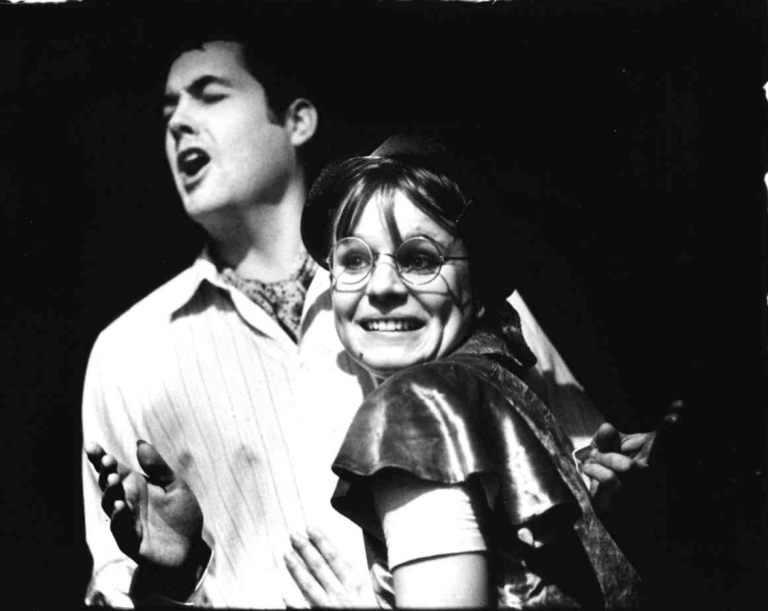
What are the challenges?
Sue: There’s so much potential and so many amazing artists but we work within a publicly funded model which is vital to our survival and sometimes we can’t always do what we want to do.
Juggling the plates of tour dates, venue availability, budget and geography can be tricky on occasions.
We find there are fewer strong theatre shows touring – an impact of cuts and often have to programme one or two handers when in the past we could easily have had a 4 hander show tour with us.
Dance is also a challenge to book when venues are looking for a full night out – everyone wants an interval! It helps with income generation and to enable audiences to catch up with each other. Money is stretched very tightly!
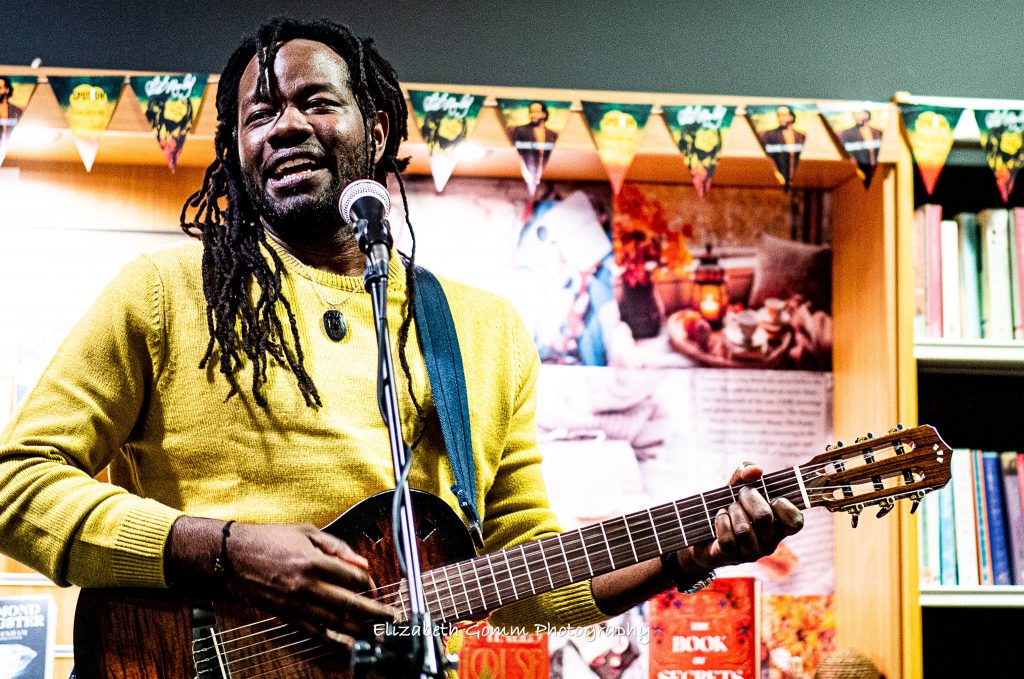
Any stand out moments for you at Spot On?
Sue: Oh this is so tricky-we have had so many amazing times. We have had such fun going back through our archive. Promoters who remember key artists and talk about them – The Polyjesters from Alberta are high up there as are the Ukulele Orchestra of Great Britain.
Somewhere along the way there was a rural touring baby facilitated by introducing two artists to each other!
We’ve had a New Zealand dance company perform a show on the back of a bus, we’ve had a solo show in campervan, shows by torchlight after a power cut, Buddhist Monks playing Crazy Golf, fish and chips and curry served up in our shows. It goes on!
Some of it is featured in our 30 stories in 30 days campaign. There’s no such thing as a typical tour.
Are you planning anything special to mark the 30 years?
Sue: We’ve produced a celebration newspaper instead of our traditional season brochure. As well as listing an amazing season of theatre, music and dance it has some interviews with key people from the past 30 years and a birthday message from Darren Henley – Arts Council England Chief Executive.
Given our first ever show was in November 1995, throughout November we will be releasing a new treat every day and sharing it with the NRTF and other partners via our socials.
How does it feel to make it to 30 years?
Sue: It started out as a project run by a freelance scheme manager (the first job title then was Rural Touring Animateur) delivering 10 events in its first season.
This year we have 37 events across village halls, libraries and museums.
There was no way I would have known when I took that first two-day-a-week contract that I would be a Director of my own arts organisation heading up such a diverse range of activities.
It’s a real example of following a journey that is interesting and seeing where it goes.
So much has changed, but in many ways, rural touring is still the same. Artists, audience, volunteers and venues all working together to create magic. It’s about human relationships.
(All images of Duane Forrest by copyright Elizabeth Gomm)


